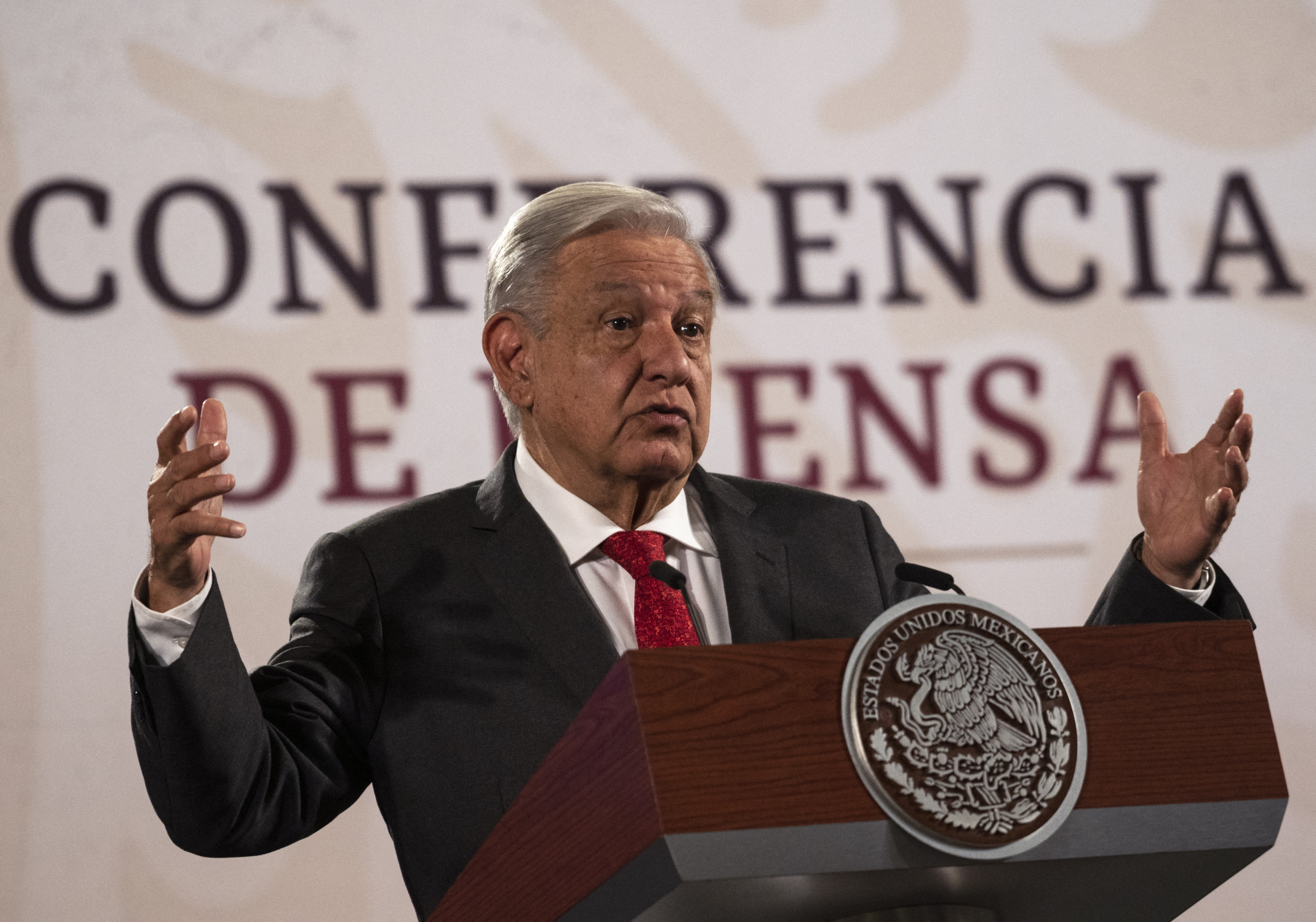On Tuesday, Mexican President Andrés Manuel López Obrador announced a pause in diplomatic relations with the U.S. and Canada. This decision follows criticism from both countries regarding his proposed judicial reform.
López Obrador’s plan aims to change how judges are appointed, tying it to an electoral process. However, many critics worry that this could result in a judiciary filled with inexperienced, politically motivated judges. The proposal has ignited protests throughout Mexico and raised concerns among investors.
During a press briefing, López Obrador reacted strongly to comments from U.S. Ambassador Ken Salazar, who warned that the reforms could threaten democracy and damage U.S.-Mexico economic ties. The president suggested that Salazar’s remarks were influenced by the State Department rather than his own diplomatic stance.

YURI CORTEZ/AFP/Getty Images
“We’re not going to expel him (Salazar),” López Obrador stated, emphasizing the need for respect for Mexico’s sovereignty. He remarked, “But until that happens, it’s on pause.” He also accused Canada of meddling in Mexico’s domestic issues due to their unease with the judicial proposal.
While López Obrador didn’t specify what a pause entails, it’s noteworthy that the trade relationship between these countries is deeply interconnected, with commercial exchanges reaching about $1.8 trillion in 2022.
This announcement comes at a time when U.S. officials have been cautious to avoid escalating tensions, with Salazar signaling openness to dialogue and respect for Mexican independence. Nonetheless, concern has been voiced by members of the bipartisan U.S. Senate Foreign Relations Committee regarding the proposed reforms.
This isn’t the first diplomatic pause López Obrador has initiated; last year, he took a similar stance with Spain over energy company disputes. That situation eventually cooled down without breaking relations, which he termed a “respectful and fraternal protest” against perceived abuses toward Mexico.
The timing of these tensions is critical as López Obrador is set to hand over the presidency to his political ally, Claudia Sheinbaum, who will be Mexico’s first female president.
This article includes reporting from The Associated Press.
